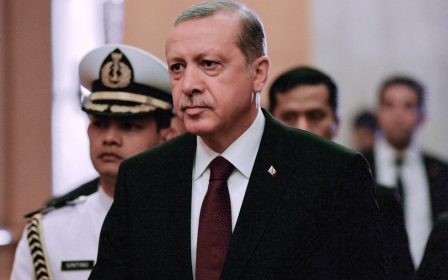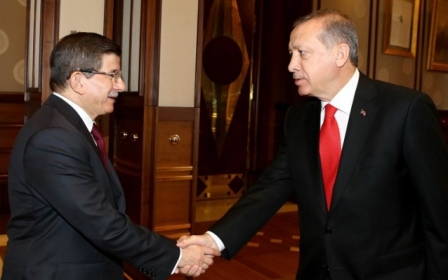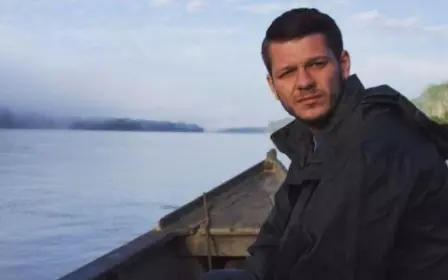Turkey announces formation of interim government

Turkish President Recep Tayyip Erdogan on Friday approved the makeup of the provisional government that will run the country until 1 November elections, including for the first time pro-Kurdish MPs.
"Our president... approved the interim cabinet formed under the leadership of Prime Minister Mr Davutoglu," the presidency said in a statement after a nearly one-hour meeting between Erdogan and Premier Ahmet Davutoglu.
The two pro-Kurdish lawmakers are from the Peoples' Democratic Party (HDP), marking the first time a Kurdish party has been represented in the government.
The newly appointed cabinet will not have to undergo a vote of confidence in parliament, as required in the constitution. The president's approval is considered enough for interim governments.
Erdogan called new elections after Davutoglu - whose ruling Justice and Development Party (AKP) lost its overall majority in parliament in June polls - failed to form a coalition government with the opposition.
He appointed Davutoglu to form an interim "election government" which according to the constitution must be made up of all parties represented in parliament.
It is the first time in modern Turkish history that post-election talks on forming a coalition government have failed.
The cabinet spots are divided up according to the parties' share of seats in parliament - with 11 going to AKP, five to the second-placed Republican People's Party (CHP) and three a piece to the Nationalist Movement Party (MHP) and the pro-Kurdish Peoples' Democratic Party (HDP).
Two Kurdish MPs
Opposition parties have refused to take part in the interim government, making the HDP - which the government accuses of being a political front for the outlawed Kurdistan Workers' Party (PKK) - and the AKP major partners in the new cabinet.
Ali Haydar Konca will act as EU affairs minister and Muslum Dogan as development minister, Davutoglu said in a press announcement. Both are lawmakers from the HDP.
In a deviation from the party line, MHP lawmaker Tugrul Turkes, son of party founder Alparslan Turkes, accepted an invitation to serve as deputy prime minister in a move denounced by the faction's leadership.
Davutoglu had to appoint nonpartisan figures to fill the seats snubbed by the opposition parties.
Selami Altinok, former Istanbul police chief, was appointed interior minister and foreign ministry undersecretary Feridun Sinirlioglu as new foreign minister.
Speaking to his party's provincial heads earlier Friday, Davutoglu said: "We will work just like a four-year government as we are heading toward 1 November."
The election comes at a time of escalating violence between Turkish security forces and Kurdish militants which has for now killed off hopes of ending the three decades long insurgency.
Erdogan on Wednesday urged voters to choose "stability" in the November polls - in a clear message to vote for the AKP thereby avoiding the instability caused by shaky coalition governments that marred Turkish politics before the party came to power in 2002.
Finance Minister Mehmet Simsek retained his seat in the interim government while former Deputy Prime Minister Ali Babacan, much-respected economic chief, is out of the cabinet.
Political uncertainty
Fitch Ratings warned on Friday that new elections may "prolong rather than end the political uncertainty" that is overshadowing Turkey's domestic and external policy challenges.
The breakdown of the peace process with the PKK and offensive against Islamic State in Syria could be "negative for the sovereign risk profile in the medium term" if there were an escalation of violence within Turkey, or if it were drawn into a protracted regional conflict, the ratings agency said.
Commentators say new elections are unlikely to yield a results very different from those in June.
"More of the same, it appears," Inan Demir, chief economist at Istanbul-based Finansbank, wrote in an email.
"Based on the currently available information, seat distribution in the next parliament is unlikely to be very different and AKP is likely to fall short of absolute majority, again."
Middle East Eye propose une couverture et une analyse indépendantes et incomparables du Moyen-Orient, de l’Afrique du Nord et d’autres régions du monde. Pour en savoir plus sur la reprise de ce contenu et les frais qui s’appliquent, veuillez remplir ce formulaire [en anglais]. Pour en savoir plus sur MEE, cliquez ici [en anglais].




